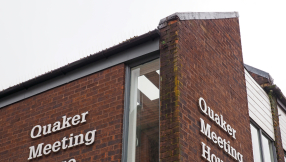Most white evangelicals now think politicians' immoral acts in their personal lives do not affect their behaviour once in office.
In an astonishing reversal of traditional views, new research released on Wednesday found seven in 10 evangelicals say politicians' bad behaviour in private does not affect their integrity in public. When compared to the wider American public, white evangelical protestants are now the most likely group to think personal immorality does not matter.

The research by Public Religion Research Institute (PRRI) and the Brooking Institution revealed that 61 per cent of Americans think dishonesty in private lives does not stop politicians from having intergrity in public. This is compared to 72 per cent of white evangelical protestants.
White evangelicals remain Donald Trump's strongest supporter base with 69 per cent favouring the Republican candidate over just 15 per cent who support Hillary Clinton. Trump has faced a series of accusations about his personal life including over alleged sexual assault and wider mistreatment of women. He has also been married three times - a fact that would usually be seen unfavourably by evangelical voters.
But the data showed a stark shift in evangelicals' views from the last time the same question was asked in 2011. At that time just 30 per cent of white evangelicals said personal behaviour did not affect a politicians' integrity. This was significantly less accommodating than the wider American public at the time, 44 per cent of who said personal behaviour did not matter.
The research also found it is less important for candidates to have "strong religious beliefs" than in 2011. While most Americans still think it either "very" or "somewhat" important for their representative to have strong religious beliefs (58 per cent), the figure is fewer than in 2011 when 66 per cent said it was important.
The research was gathered between 12 and 17 October from a random sample of 1,005 adults.









